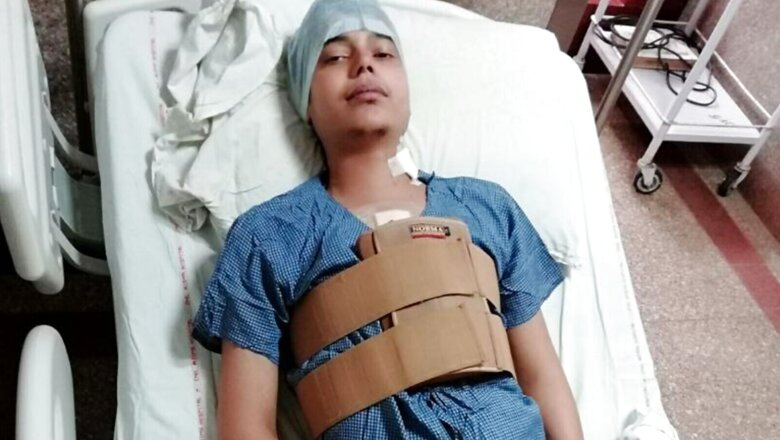
views
It was a usual Saturday morning for 42-year-old Karhun Nanda in December 2015.
He hardly knew how his life would flip in a matter of a few hours when he went out to play football – the love of his life since childhood.
“I started playing football when I was 12 years old… I always dreamt of representing India at national-level championships,” Nanda told News18.com. “Unfortunately, I could not make it past the state level and then, I decided to take up engineering. But I did not stop playing.”
But that morning was unusual. Nanda came back from his football game complaining of acute aches and pains. “Half an hour later I was lying down wincing with pain.”
His family took him to the clinic of their family doctor where it was diagnosed that he had suffered a massive heart attack.
He suffered a condition known as “sudden cardiac death” which eventually led to congestive heart failure.
The medical reports suggested that he suffered the heart attack due to an “idiopathic condition”, which means a disease or condition which arises spontaneously and for which the cause is “unknown”.
“The doctors at Fortis Escorts Hospital in Delhi suggested a heart transplant as the only solution,” Nanda recalled, adding that “for a while, I wasn’t sure if things would be back to normal, but it’s been 5 years and I have bounced back.”
When he says life has bounced back, he literally means it.
Nanda’s heart transplant has given him a unique opportunity to represent India at an international level in golf at the World Transplant Games 2019 in Newcastle – an international sporting event for transplant athletes which is now slated to take place again in 2023 in Perth, Australia.
Nanda is preparing to participate in the upcoming event as well.
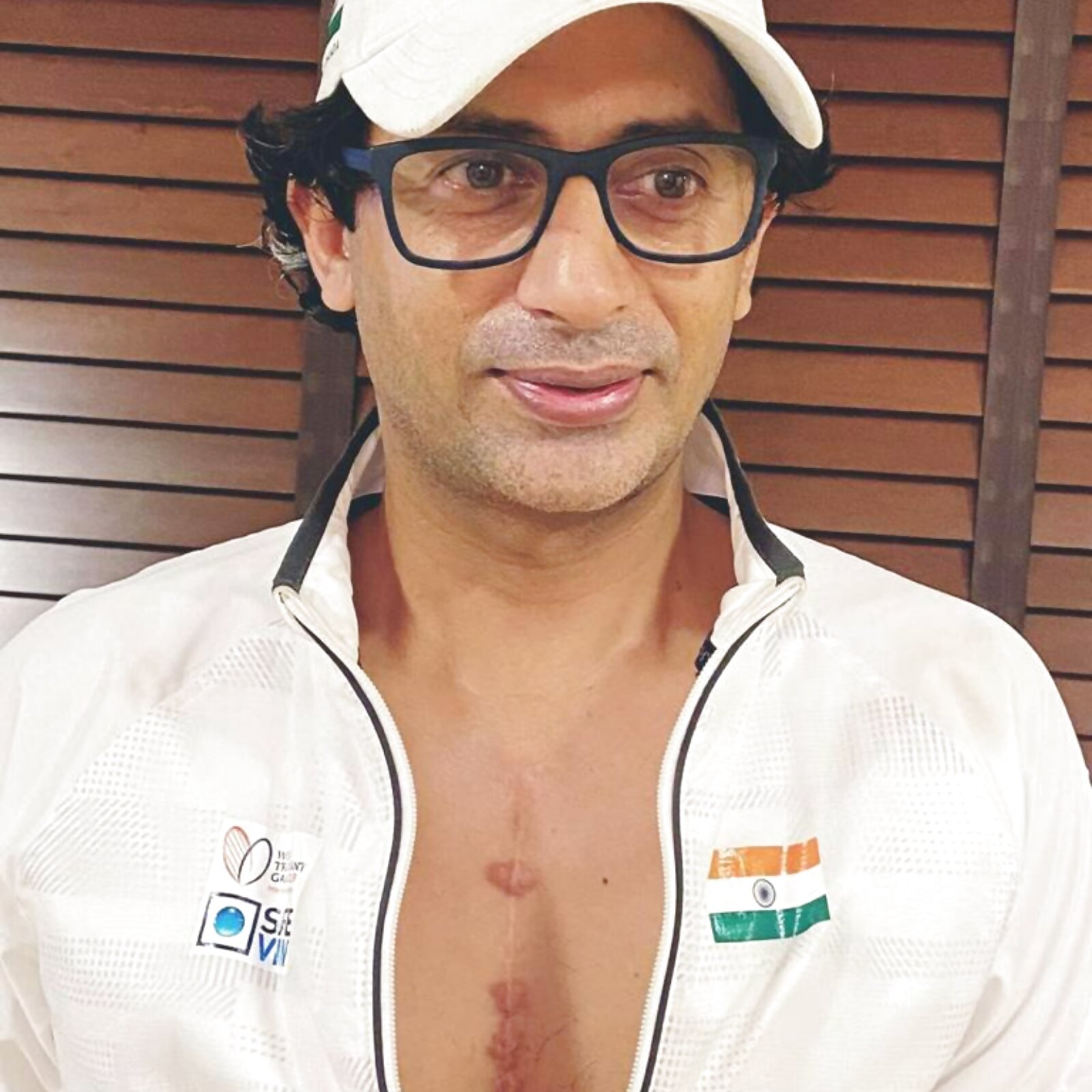
World Transplant Games welcome competitors who have received organ transplants for at least 1 year, and with stable graft function.
“I was not able to secure a medal as I had just started playing this difficult game. Now having been coached by some greats, I feel I have trained enough to be in a medal-winning position for the next games. I am excited to participate in the WTG 24 at Perth and hold India’s flag high,” Nanda said.
Second chance
Nanda is not alone in racing against time and winning a new life.
Rahul Prajapati’s dream of becoming a sports star crashed when he was just 19 years old, as he was unable to walk even five steps without being tired and uncomfortable.
Sweating and breathlessness became his usual complaint. “I was surprised at how my body was behaving so unusually. Why am I sweating and feeling so drained out?” Rahul told News18.com.
The local doctor at his ancestral village, Baghpat, in Uttar Pradesh performed an echocardiogram (ECG) and told him to consult at the All India Institute of Medical Sciences, New Delhi. “It was enough to hint that something was grossly wrong,” he said.
After a thorough test and examinations at the AIIMS, he was diagnosed with Dilated Cardiomyopathy (DCMP) – a condition that causes the chambers of the heart to thin and stretch, making it difficult for the heart to pump blood effectively.
Brave enough to face life with its challenges and adapt to a new and healthy way of living starting in 2012, Rahul was managing his condition until one day in 2017, he suffered a paralytic attack.
“Doctors told my family there was no other option besides a transplant,” he recalled.
And then the hunt for heart donors began.
He still remembers that it was February 18, 2018, when his family got an urgent call from AIIMS that a viable heart had been retrieved. He was operated on that night and from there, his life changed – for good, of course.
Rahul now leads a fit and active life and in fact, over the past few months, the badminton player has been training hard to participate in the World Transplant Games, 2023.
The challenges
For Rahul, his transplant and the sacrifice of the donor’s family is something that he must honour by living to the fullest. His dream is to represent India at the World Transplant Games and he hopes to make both his donor and his country proud.
“I am falling short of funding. However, I’m still trying my best to collect funds and participate in the games,” he said.
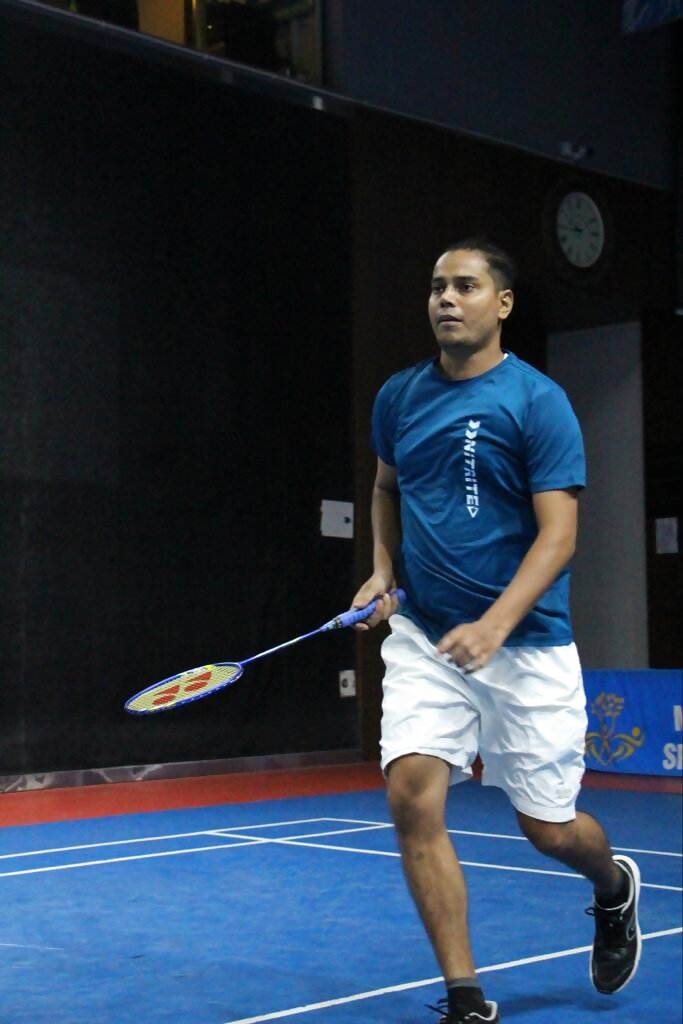
Tight finances are one of the few challenges he has been facing post-transplant. “I generally face rejection in job interviews as generally, employers don’t take it in the right stride that I am a heart-transplant recipient,” said Rahul.
His family is currently being taken care of by his father’s income. “My monthly medical expenses are around Rs 33,000 which includes a life-long dose of immunosuppressants and steroids apart from other supplements,” he said.
Increasing heart donations in India
Over the years, donations for heart transplants have been increasing in India. According to the data by NGO ORGAN India, the number of hearts donated by deceased donors doubled from 2014 to 2021.
In 2014, 53 hearts were donated by deceased donors which quadrupled to 241 in 2018. The progress was hampered due to the Covid outbreak in 2020 when only 89 hearts were donated. However, the momentum picked up again in 2021, with 151 donations.
“Earlier, it was very difficult for us to convince people or even take their time out to explain what organ donation means. They would presume that it’s something inauspicious,” Sunayana Singh, CEO of ORGAN India, which works to facilitate organ donation and transplantation in the country, told News18.com. “But now, things have changed. With the continuous efforts of stakeholders involved, including us, people are coming out and pledging to donate organs after their death.”
ORGAN India, which is an initiative by Parashar Foundation, has become a member organisation at the World Transplant Games Federation and is the team manager for 89 Indian athletes going to participate in the upcoming games.
“We have received participation from 16 states and 2 union territories including Kerala, Meghalaya, Karnataka, Gujarat, Maharashtra, Tamil Nadu, Madhya Pradesh, Telangana, Andhra Pradesh, Uttar Pradesh, Uttarakhand, Rajasthan, Haryana, Himachal Pradesh, West Bengal, Punjab, Delhi, and Jammu and Kashmir,” said Singh.
Out of this, Singh expects to take a team of approximately 45 athletes.
“These athletes have fought against all odds to come back from the brink of death, and are now highly fit and training hard to win medals for their country,” she said. “They want to prove that life after transplant is healthy and as good as healthy people’s.”
Read all the Latest News India and Breaking News here














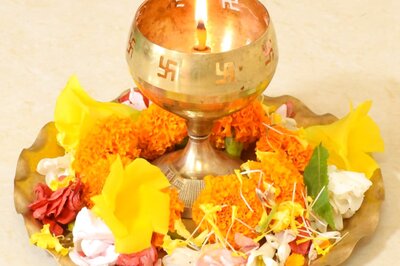
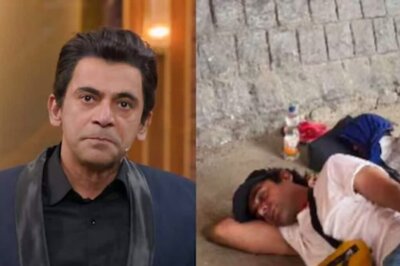

Comments
0 comment